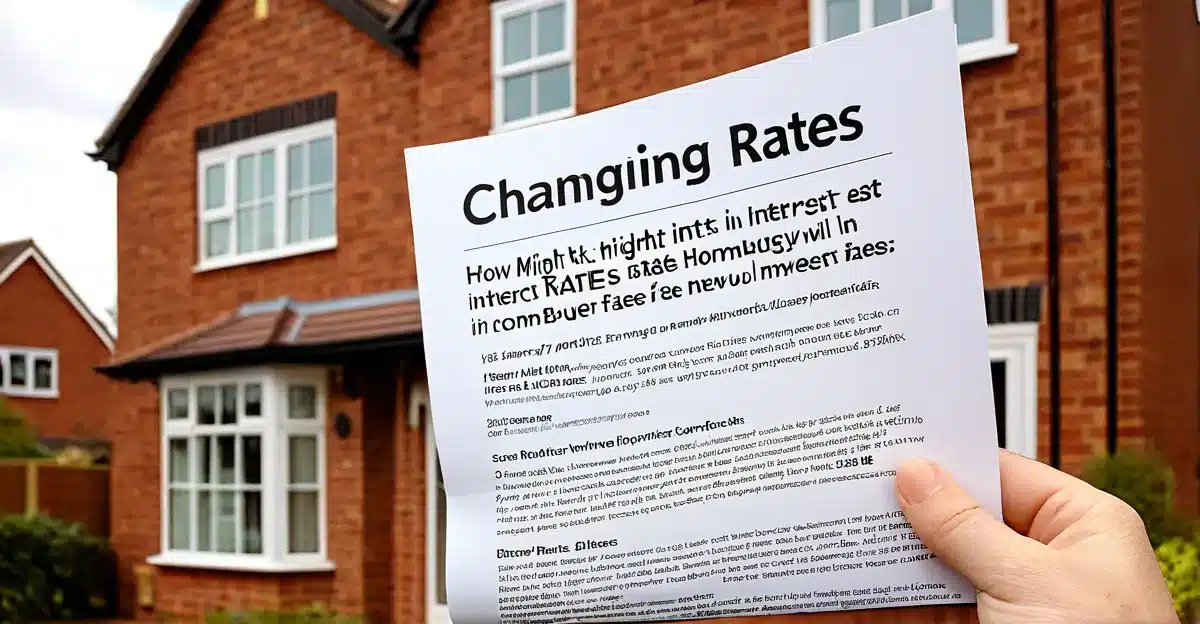Immediate impacts of changing interest rates on new homebuyers
Interest rates directly influence mortgage costs, shaping the financial landscape for new homebuyers in the UK housing market. When interest rates rise, the cost of borrowing increases immediately, causing monthly mortgage repayments to become more expensive. This shift can significantly reduce affordability, especially for first-time buyers working within tight budgets. Conversely, falling interest rates lower mortgage repayments, making homeownership more accessible.
Lenders respond promptly to interest rate changes by adjusting their loan eligibility criteria. Higher interest rates typically lead to stricter lending standards, requiring borrowers to demonstrate greater income stability or higher creditworthiness. This cautious approach helps lenders minimize risk but can also limit the pool of eligible new homebuyers. When rates drop, lenders often loosen criteria, enabling more potential buyers to qualify.
Additional reading : How Might Recent Developments in UK Finance Affect the Property Market?
The connection between base rate movements and consumer borrowing costs is direct and strong. The Bank of England’s base rate changes act as a benchmark that influences lenders’ mortgage rates. An increase in the base rate causes consumer borrowing costs to rise, pushing up mortgage interest rates and monthly repayments. In sum, new homebuyers keenly feel the immediate effects of interest rate fluctuations in the UK housing market, with mortgage costs and loan access shifting accordingly.
Influence on property prices and market trends
Understanding the correlation between interest rates and property prices is crucial for anyone involved in UK real estate. When interest rates rise, borrowing costs increase, often leading to a slowdown in buyer demand. This reduced demand typically pressures property prices downward, as fewer buyers compete for homes. Conversely, when rates fall, mortgages become more affordable, sparking an increase in buyer interest, which can push property prices higher.
Have you seen this : What impact does inflation have on UK real estate prices?
Market activity reflects these dynamics clearly. For example, during recent periods of rising rates, the UK housing market saw a notable reduction in transaction volumes. Sellers experienced longer times on the market, which shifted the typical selling cycles and made properties linger before closing sales. On the other hand, falling interest rates invigorated buyer demand quickly, creating more competitive environments and speeding up sales.
Recent UK housing market trends show this relationship vividly. After a phase of rate hikes, demand weakened, leading to stabilizing or falling property values in many regions. However, as the Bank of England signaled pauses or cuts, renewed enthusiasm has driven price rebounds in key cities.
In summary, tracking interest rate changes provides insightful guidance on potential shifts in property prices and broader housing market trends, making it an essential factor for both buyers and sellers in UK real estate.
Affordability, personal finances, and homebuyer strategies
Understanding the financial landscape for UK buyers
Home affordability remains a critical concern for many aspiring homeowners, especially as deposit requirements continue to challenge household budgets. The typical deposit in the UK often ranges between 5% and 20% of the property price, directly influencing initial savings goals and impacting personal finance strategies. Those planning to purchase should evaluate their current financial standing carefully to determine a realistic deposit target without compromising essential living expenses.
Mortgage strategies have evolved alongside fluctuating interest rates. Opting for a fixed-rate mortgage can provide predictable monthly payments and protect against rising rates, while a variable-rate mortgage may offer lower initial costs, suitable for those anticipating short-term ownership or income growth. Adjusting the mortgage term — such as extending it to reduce monthly payments or shortening it to minimize interest — is another vital tool in managing affordability effectively.
Long-term financial stability hinges on careful planning. Prospective homebuyers must consider not only upfront costs but ongoing commitments like property taxes and maintenance. Incorporating personal finance advice UK experts recommend — such as building an emergency fund and reviewing budgeting — ensures that homeownership remains sustainable regardless of market shifts. Balancing these elements can empower buyers to navigate the market with confidence and resilience.
Practical tips and guidance for navigating interest rate changes
Understanding mortgage options to make informed decisions
When considering mortgage advice, especially in a fluctuating interest rate environment, first-time homebuyers must carefully evaluate fixed versus variable rate mortgages. Fixed-rate mortgages offer stability by locking in an interest rate for the loan term, protecting borrowers from sudden rate hikes. Conversely, variable rate mortgages can start lower but may increase, raising monthly payments if UK interest rates rise.
Obtaining a mortgage pre-approval is crucial—it provides clarity on your borrowing limit and strengthens your position when making an offer. In volatile markets, securing a rate-lock can safeguard against future interest rises during the purchasing process, offering peace of mind.
For those new to the property market, various resources and support systems are available in the UK to help navigate complexities. Government-backed schemes and financial guidance services can clarify terms and outline eligibility for incentives. Engaging with mortgage advisors familiar with the UK interest rate guidance ensures personalized recommendations aligned with your financial goals.
By understanding these options and tools, first-time homebuyers can confidently navigate rate fluctuations and secure mortgage terms that suit their circumstances, avoiding surprises down the line.

